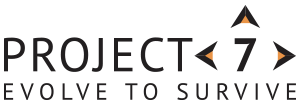
The British Armed Forces instil discipline, resilience, and a strong commitment to achieving goals, even under challenging conditions. Each year, over 15,000 personnel transition from military to civilian life, offering a valuable talent pool for British businesses. Veterans bring unique skills and qualities that can greatly benefit civilian workplaces, but ensuring they “hit the ground running” requires a tailored onboarding process.
This guide outlines best practices for integrating veterans and offers insights applicable to onboarding all new employees, creating an effective and inclusive induction process that supports both personal and business growth.
Recognising the Value of Veterans
Veterans possess skills that often go beyond traditional qualifications—leadership, teamwork, problem-solving, and decision-making under pressure. Many have experience in logistics, project management, engineering, IT, and HR, roles that overlap significantly with civilian business needs. Beyond technical skills, veterans also bring qualities like responsibility, emotional intelligence, and a results-driven mindset.
To maximise their potential, businesses must recognise these transferable skills. With an effective orientation process, the wealth of experience gained in military service can be smoothly transitioned into civilian roles.
Best Practices for Integrating Veterans into Your Business
- Create Job Adverts with Intention
Attracting veterans starts with writing job adverts that resonate with their values and skills. Use clear, concise language to highlight qualities like leadership, discipline, and adaptability. Emphasise how these attributes are valued in your company and align with its culture. Mention your commitment to integrity, teamwork, and professional growth, and encourage veteran applicants. This demonstrates that their background is valued and that they have a place in your organisation. - Recognise and Translate Transferable Skills
Military veterans possess skills that may not always align with conventional qualifications but are highly applicable to business needs. For instance, a logistics officer in the armed forces may not have specific supply chain credentials but has extensive experience managing complex resources in high-pressure environments. Educate hiring managers on how military experience translates into business roles. Partnering with veteran organisations, such as The Royal British Legion, can help identify and translate military skills into business contexts before veterans start their new roles. - Develop Tailored Onboarding Programmes
A personalised onboarding process is key to veterans’ success. This process should acknowledge their military background while bridging gaps between military and civilian work cultures. Veterans often thrive in structured, goal-oriented environments, making a clear induction process essential. An effective onboarding programme should include:
– Structured Induction: Outline the company’s mission, values, and goals, showing veterans how their role contributes to the bigger picture.
– Mentorship: Pair veterans with mentors, ideally other veterans who have successfully transitioned to civilian roles, providing guidance and support during the adjustment period.
– Cultural Adaptation: Help veterans understand civilian work culture nuances, such as lateral communication and collaborative decision-making, which may differ from the military structure. - Leverage Veterans’ Leadership Abilities
Veterans bring proven leadership skills, making them ideal candidates for supervisory or managerial roles. Their experience in leading teams and ensuring mission success transfers effectively to both middle management and senior roles. Early leadership roles allow veterans to demonstrate their ability to guide others and drive projects, creating immediate value for your organisation. Their capacity to foster teamwork and implement processes makes them well-suited to roles requiring leadership and accountability. - Invest in Ongoing Professional Development
Providing ongoing professional development is essential for veterans’ long-term growth. Invest in industry-specific training, certifications, or leadership programmes to help veterans expand their skill set. This commitment aligns with veterans’ desire for career progression and helps build a mutually beneficial relationship. By offering growth opportunities, businesses can benefit from a motivated, loyal, and continuously improving workforce.
Applying Veteran-Oriented Practices to All New
EmployeesThe strategies for onboarding veterans are equally valuable for onboarding all new hires, creating an inclusive and effective induction process:
- Structured Induction: A clear onboarding programme helps all employees understand how their work contributes to the business.
- Mentorship Programmes: Mentors can guide new employees and ease their transition into the company culture.
- Leadership Development: Nurturing leadership potential from day one helps develop a motivated, goal-driven team.
- Focus on Growth: Providing training and development opportunities keeps employees engaged and benefits retention and satisfaction.
Conclusion: A Win-Win for Businesses and VeteransIntegrating veterans into civilian businesses is not just about corporate social responsibility—it’s a strategic decision that brings real value. Veterans are skilled, adaptable, and bring an exceptional work ethic. By recognising their transferable skills, providing tailored onboarding, and offering professional development, companies can unlock veterans’ full potential.
These best practices also benefit all employees, fostering a supportive, growth-oriented culture. Whether military or civilian, every employee can thrive with a structured, inclusive induction process that sets them up for success.



